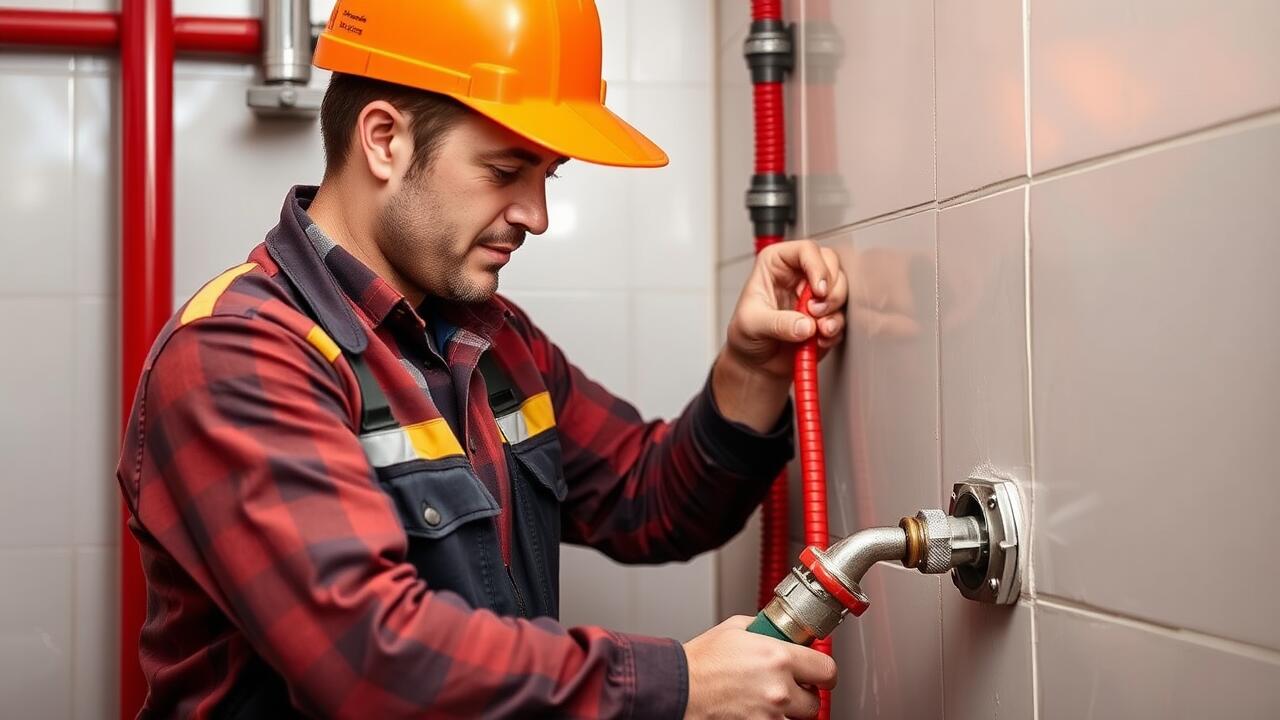
Table Of Contents
Energy Efficiency and Cost Savings
Heat pump hot water systems offer significant energy efficiency compared to traditional electric or gas heaters. They draw ambient heat from the air, which is then used to heat water. This method requires less energy to produce the same amount of hot water, resulting in reduced utility bills. Many consumers find that the initial investment in a heat pump system is offset by long-term savings, particularly in regions with substantial heating needs. A qualified hot water plumber can help assess the optimal size and model suited for individual household requirements, ensuring maximum efficiency.
Over time, the savings on energy bills combined with government incentives can make heat pump hot water systems financially appealing. Operating costs are typically lower, and as energy prices fluctuate, users experience more stable expenses. Homeowners may also find that the longevity of these systems contributes to additional savings, as they often require less frequent replacement than conventional systems. By consulting a hot water plumber, homeowners can gain valuable insights into the initial costs and projected savings, aiding in making an informed decision that benefits both the budget and the environment.
Evaluating Performance Metrics
When assessing the performance metrics of heat pump hot water systems, several key indicators come into play. The coefficient of performance (COP) is a crucial metric, representing the ratio of heat output to energy input. A higher COP indicates greater efficiency, making it a prime factor in determining overall energy savings. Additionally, monitoring the recovery rate can provide insights into how quickly the system can heat water, which is especially important for households with high demand for hot water.
Regular evaluations of these metrics can help homeowners make informed decisions about their systems. Consulting with a hot water plumber can aid in understanding these performance indicators and identifying any potential issues before they escalate. Ensuring that these metrics remain within optimal ranges not only maximises energy efficiency but also enhances the lifespan of the heat pump system.
Maintenance Tips for Longevity
Regular maintenance of heat pump hot water systems is crucial for ensuring their longevity and optimal performance. It is advisable to schedule routine inspections with a qualified hot water plumber to detect any arising issues before they escalate. Routine checks can include assessing the system’s filters, inspecting the refrigerant levels, and examining the electrical components for wear and tear. Keeping the system clean and free from debris will also help in maintaining efficiency and prolonging its lifespan.
In addition to professional services, homeowners can undertake basic maintenance tasks. Checking the temperature settings is essential, as it impacts both energy consumption and the system's efficiency. Every few months, users should inspect drainage paths to prevent water accumulation. This simple practice can reduce the likelihood of damage and help avoid expensive repairs in the future. By combining professional inspections with regular homeowner checks, the longevity of a heat pump hot water system can be significantly enhanced.
Routine Checks and Services
Routine checks and services are essential for ensuring the efficiency and longevity of heat pump hot water systems. Regular inspections help identify any minor issues before they escalate into significant problems. A qualified hot water plumber can assess the system's performance, inspect the electrical components, and examine the overall condition of the heat pump. This proactive approach can result in enhanced efficiency, reducing costs associated with unexpected repairs.
It is also crucial to clean or replace filters as per the manufacturer's recommendations. A clean filter allows for better airflow and improves the heat pump's overall efficiency. Additionally, checking for any signs of wear or leaks should be part of routine upkeep. Engaging a professional hot water plumber for these checks ensures that any maintenance carried out meets safety standards and optimises the system’s performance.
Environmental Impact
Heat pump hot water systems significantly contribute to reducing environmental impact by utilising renewable energy sources. These systems harness heat from the surrounding air, making them more energy-efficient compared to traditional electric or gas water heaters. By lowering energy consumption, they help facilitate a reduction in greenhouse gas emissions. Adopting such technology aligns with growing efforts to promote sustainability and combat climate change.
Utilising a hot water plumber for installation and maintenance ensures optimal performance of heat pump systems. Professionals can provide insights on energy usage, guiding homeowners toward the most eco-friendly solutions tailored to their needs. Regular assessments and servicing not only enhance the system's efficiency but also prolong its lifespan. This approach reduces waste and encourages responsible resource management, further minimising the environmental footprint associated with hot water heating.
Reducing Carbon Footprint
Heat pump hot water systems significantly contribute to reducing a household's carbon footprint. By using renewable energy sources, such as air or ground heat, these systems operate with higher efficiency than traditional electric or gas water heaters. A hot water plumber can help assess the unique needs of a home, ensuring the system is correctly sized and optimised for energy savings. This reduction in energy consumption translates into lower greenhouse gas emissions, making these systems an eco-friendly choice for hot water supply.
Moreover, investing in a heat pump hot water system can lead to sustainable energy practices within communities. When multiple households adopt similar systems, the cumulative effect on energy demand can lead to a noticeable decrease in reliance on fossil fuels. This shift not only promotes a cleaner environment but also encourages the growth of renewable energy sectors. Engaging a qualified hot water plumber for installation ensures that these systems operate efficiently, amplifying their positive environmental impact.
FAQS
What is a heat pump hot water system?
A heat pump hot water system is a type of water heating system that uses electricity to move heat from the air or ground to heat water, making it more energy-efficient than traditional electric or gas water heaters.
How energy-efficient are heat pump hot water systems?
Heat pump hot water systems can be highly energy-efficient, often using up to 75% less energy than conventional systems. This efficiency can lead to significant cost savings on energy bills over time.
What maintenance is required for heat pump hot water systems?
Regular maintenance for heat pump hot water systems includes routine checks of the filters, cleaning the heat pump unit, and inspecting the anode rod to prevent corrosion. It's also advisable to schedule professional servicing annually.
How do heat pump hot water systems impact the environment?
Heat pump hot water systems have a lower carbon footprint compared to traditional water heaters, as they consume less energy and can use renewable energy sources. This contributes to reducing greenhouse gas emissions.
What factors should I consider when evaluating the performance of a heat pump hot water system?
Key performance metrics to consider include the system's energy efficiency rating (COP), storage capacity, recovery rate, and installation space. Additionally, consider the local climate, as heat pump performance can vary with air temperature.





























